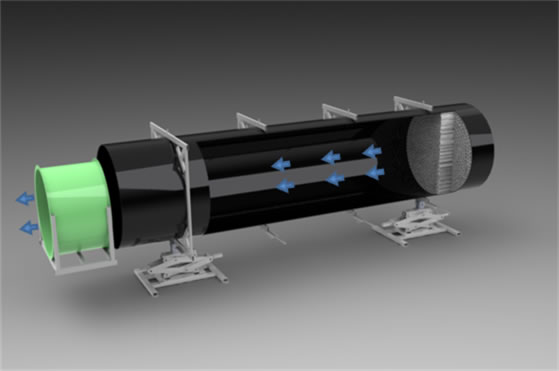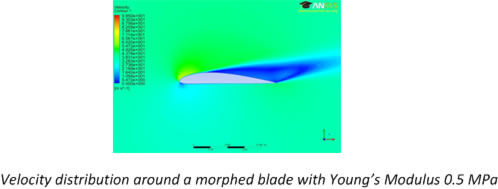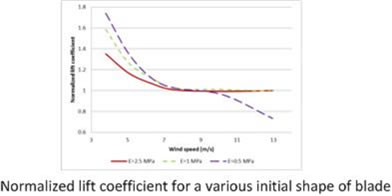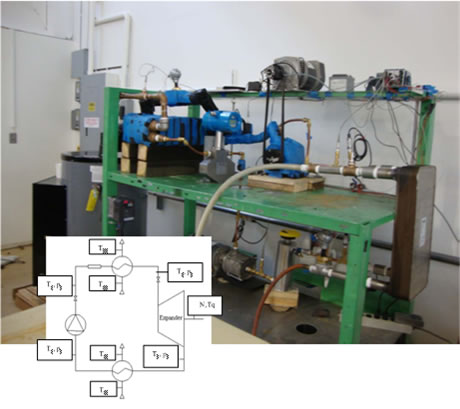| |
Research Areas
My strategic research work is targeted at two interlinked areas: energy efficiency and renewable energy. The efficiency domain of my research focusses on improving system or component performance through such approaches as waste heat recovery and combined heat and power, - especially from resources with low temperatures. The idea of low grade heat recovery broadly covers such areas as stack heat or solar thermal using organic refrigerants for Rankine or other cycles.
The renewable energy side of my research employs computational fluid dynamics to improve energy recovery from wind and wave. This area of research covers such topics as adaptive motion, morphing blades, and wave and wind resource analyses.
Ongoing Projects
Adaptive Motion: Birds, fish, and various water dwelling mammals use adaptive fin motion to create a propulsive thrust to propel them either through air or water. During the last decade, this particular phenomenon of kinematic motion has been studied by various scholars to gain an understanding of how and why the large relative efficiencies and body accelerations are attained. Invariably, the studies generally are interested in gaining an understanding of the phenomena so that these motions and kinematics can be applied to engineering design efforts. Various groups have built propulsive devices that are intended to mimic motions of these highly efficient, adaptive motion propulsors with various degrees of successes. We are actively involved in research on adaptive motion, modeling, designing, building, and testing morphing blades for wind and wave energy applications. see for example: Beyene A., Peffley J., Constructal Theory, Adaptive Motion and Their Theoretical Application to Low Speed Turbine Design, American Society of Civil Engineers, Journal of Energy Engineering, Vol. 135, No 4, Pages 112-118, Dec. 2009
 

Combined Heat and Power Systems (CHP) for Ultra-low Grade Heat Recovery: Ongoing projects include the use of such systems in ethanol production from sugarcane, as well as performance and efficiency related issues with combined heating, cooling and power systems. Because of its superior efficiency and peak load mitigation capabilities, considerable attention has been given recently to combined Cooling, Heating and Power (CCHP). The technology enjoys tax benefits, incentives, accelerated permit processes, etc both at the local, state, and federal levels. One serious challenge to the implementation of CCHP systems is matching and sizing of the system to strongly and frequently varying load conditions. We are involved in research with emphasis on load factors. We are actively collecting field data to evaluate the field performance and sizing challenges of CHPs. see for example: Husband W. W., Beyene A., Low Grade Heat driven Rankine Cycle, a Feasibility Study, International Journal of Energy Research, 2008, Volume 32 Issue 15, Pages 1373 - 1382.

On-going test stand of ORC
Heat Recovery from Traction Engines for Absorption Chiller: Under this project, we recover the waste heat from automobile engine and use it to run ammonia based absorption chiller. see for example: Talom L. T., Beyene A., Heat Recovery from Automotive Engine, Applied Thermal Engineering (2009), Volume: 29 Issue: 2-3 Pages: 439-444

Ozone-free Refrigerants for Low Grade Heat Recovery: Low grade waste heat is very common in manufacturing plants. Because of associated cost and poor efficiency, recovering low grade heat poses a serious challenge. Conversion to high quality useful form such us electricity requires the use of proper refrigerant with suitable properties that also addresses today's environmental and handling/hazardous challenges. Under this project, we develop a Rankine cycle for low grade heat recovery that runs on acceptable refrigerants.
Comparison PV and Rankine Cycle for Solar Energy Conversion Using: With several years of payback, PV has so far been considered uneconomical for solar energy conversion. In the hope to cut down cost the cost and make it competitive with PV, we are considering Rankine cycle for solar energy conversion.
The Industrial Assessment and the Pacific Region CHP Application Centers may also have projects for senior and graduate students.
Other on-going projects:
Please contact Dr B.
|
|





